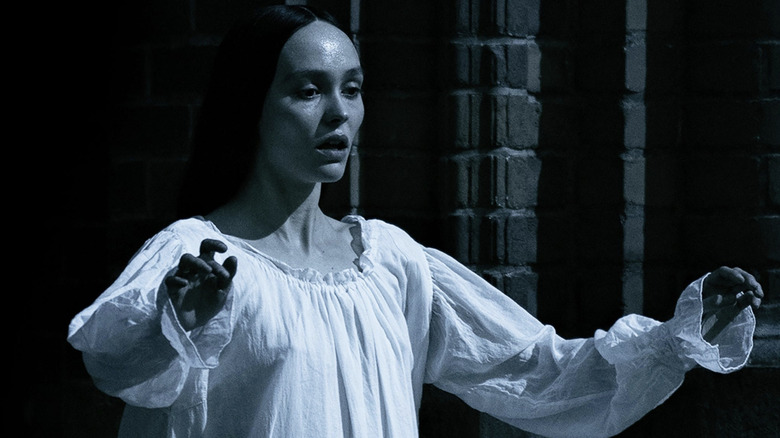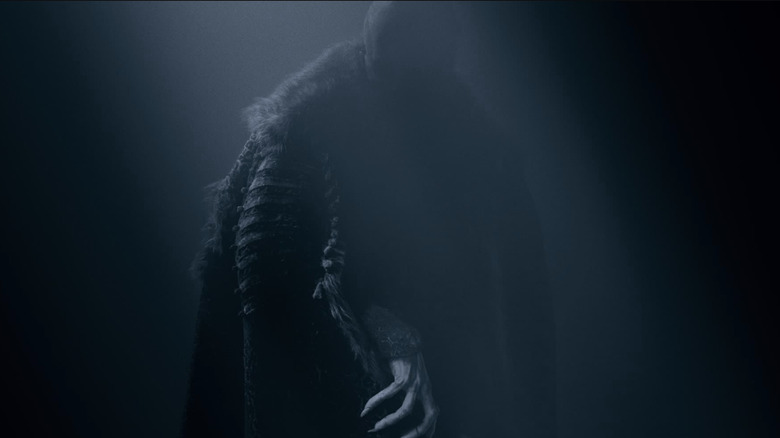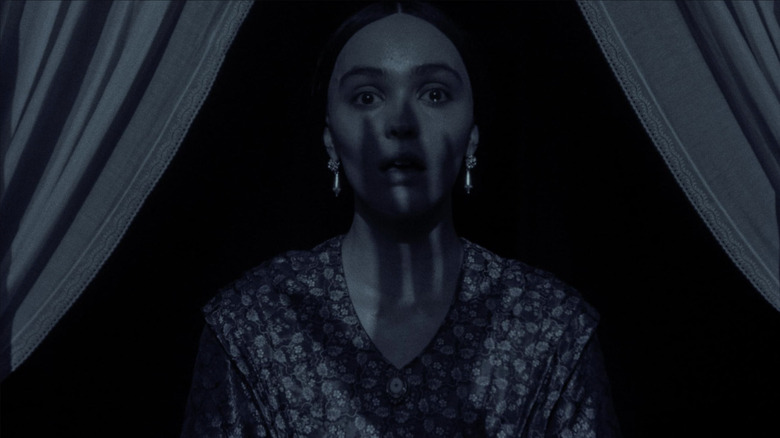
After Robert Eggers arrived on the scene with “The Witch” in 2015, it was obvious we were in the presence of a budding genre master. “The Lighthouse” and “The Northman” were also well received by critics, but now, in 2024, a lifelong passion project has finally come to fruition. Eggers’ “Nosferatu” is, in my opinion, one of the best movies of the year, regardless of genre. It’s certainly the scariest, but I fear that because it is a capital-H “Horror Movie,” it will once again be shut out of major awards discussions. The Academy Awards, for example, notoriously overlook horror movies, a true shame when considering how many incredible performances and brilliant cinematic achievements can be found within the genre. I was recently given the opportunity to sit down one-on-one with Eggers, so I asked him, point blank, what is it that he thinks they’re so afraid of?
“I just think that because of the history of genre films originally often being relegated to B-movies, I think it’s just something that people haven’t totally wrapped their minds around as considering something as important,” he explains. “We know that it’s important to explore the darkness in humanity, so there is great value in expressing what it is to be human with other humans by looking at the stuff that we don’t necessarily want to look at, but that can be difficult.” This stigma is well documented and is precisely why there was a push a few years ago for “elevated horror” to be its own subgenre because filmmakers knew that the general viewer perceives horror films as nothing more than blood and boobs.
It’s a shame, because that misconception might be why they, and many others, miss out on a film as lush and haunting as “Nosferatu.”
Biting back against the stigma of vampires
Vampires are such fascinating monsters to study, because while the term “vampire” is colloquially used as an insult (so much so that “What We Do in the Shadows” introduces a literal energy vampire with the character of Colin Robinson), if a person were to be asked what monster they’d be if given the choice … you’d be hard-pressed to find someone who isn’t immediately attracted to being a vampire. “I do think that sometimes when vampires, witches, and werewolves are involved … to people with quote-unquote ‘good taste,’ it becomes trivial,” Eggers tells me.
“Even though these are the kind of archetypal stories that keep getting told over and over again because they have resonance. I mean, that’s the same reason why King Lear and Oedipus are told over and over again.” Again, he’s right. According to the Guinness World Records, Count Dracula is the most portrayed literary character in film. He’s a seminal figure in the world of entertainment, and yet so many people can’t seem to get past the stigma of “horror.”
Immortality is already an alluring concept, but vampires are also undoubtedly the sexiest monsters. In the case of the classic lesbian vampire — as shown through directors like Jesús Franco, Harry Kümel, and Roger Vadim — it often includes fabulous robes, beautiful jewelry, and a rotating roster of gorgeous wives. Sorry, werewolves and witches, but the fangbangers win yet again, and Eggers agrees.
Embracing sex and death with vampirism
“It’s interesting because, as particularly the cinematic vampire has evolved through the 20th and 21st century, the sort of ‘relatable outsider’ has become the number one vampire,” he explains. “And we’ve gone from scary vampires to antihero vampires to Edward Cullen, but I like the vampires that must live in darkness and can’t sparkle [laughs].” This love is well on display in “Nosferatu,” as Bill Skarsgård’s Count Orlok spends much of the movie cloaked in darkness, seducing his victims into submission from within the shadows.
“I think the power of the vampire is in the demonic and is in the shadow side,” Eggers says, “and I’ve been into vampires since I was a kid.” As he’s grown older, he’s found the language to explain his obsession. “There had to be something compelling about the taboo nature of sex and death that I wasn’t allowed to talk about and didn’t frankly understand as a kid, but there’s something about that power of those two things together that I think makes the vampire very appealing, even in ‘Twilight.'”
Despite my open disdain about the “Twilight” franchise as a teenager, I’ve grown to be very defensive of those who love the series, because ultimately, my preference for the dark, brooding, hedonistic vampires should have no bearing on whether or not daywalking, chaste vampires popular with pre-teens can exist. But on a personal level, Eggers tells me that it isn’t the traditional vampires of Bram Stoker or Sheridan Le Fanu that he’s most likely like to live alongside. “I don’t think I would want to live in any vampire movie,” he jokes, “but I think some of the Anne Rice vampires seem to have a good time for a little while.”
“Nosferatu” awakens in theaters on December 25, 2024.




Leave a Reply